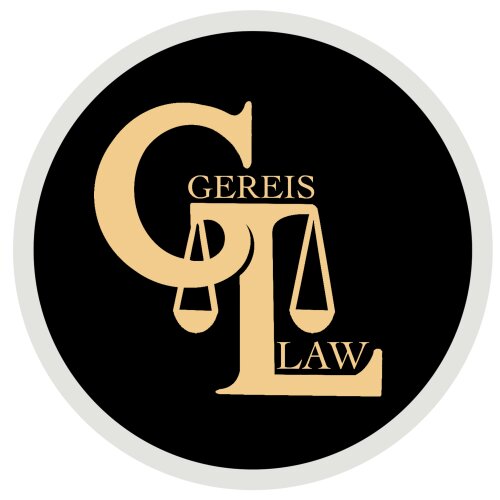Best Criminal Defense Lawyers in Vermont
Share your needs with us, get contacted by law firms.
Free. Takes 2 min.
Or refine your search by selecting a city:
List of the best lawyers in Vermont, United States
United States Criminal Defense Legal Questions answered by Lawyers
Browse our 1 legal question about Criminal Defense in United States and read the lawyer answers, or ask your own questions for free.
- Do you prosecute local Philippina for violating ESTAFA laws
- I was scammed by a lady presenting herself as my girlfriend.
-
Lawyer answer by mohammad mehdi ghanbari
HelloBased on the laws of the Philippines, you can file a criminal complaint against the person who scammed you for violating the laws on Estafa (swindling). Estafa is a criminal offense that involves defrauding another person of money or property...
Read full answer
United States Criminal Defense Legal Articles
Browse our 3 legal articles about Criminal Defense in United States written by expert lawyers.
- Clearing Your Record in Texas: 2026 Expunction Rules for US
- Criminal defense in the United States protects your rights from the moment of investigation through trial, sentencing, and appeals, and the stakes can include jail, fines, immigration consequences, and your future job prospects. You always have key constitutional rights: to remain silent, to have a lawyer, to be free from... Read more →
- Texas DWI Laws 2026 First Offense Penalties
- If you are arrested in the United States, you have the right to remain silent, the right to a lawyer, and the right to a fair trial - use those rights from the start. Criminal cases move quickly at the beginning: after arrest come booking, bail, your first court appearance,... Read more →
- Texas Bail Reform 2026: Why Bonds Are Harder to Secure in US
- If your loved one has just been arrested, move fast: confirm the exact charges, find out the bond amount, and contact a criminal defense lawyer immediately. In the United States, you have core rights at every stage - to remain silent, to an attorney, to reasonable bail (subject to exceptions),... Read more →
About Criminal Defense Law in Vermont, United States
Criminal defense law in Vermont centers around protecting the rights of individuals accused of committing crimes. Whether faced with misdemeanor or felony charges, every person is considered innocent until proven guilty and is entitled to a fair trial. Vermont’s criminal justice system involves law enforcement agencies, prosecutors, defense attorneys, and the courts, working under a framework designed to ensure justice, offer rehabilitation where possible, and maintain public safety. Criminal defense lawyers play a critical role in advising, representing, and advocating for defendants through every stage of the legal process.
Why You May Need a Lawyer
Being accused of a crime can be overwhelming, and the consequences of a conviction can be life-changing. Legal representation is crucial in a range of situations, such as:
- Arrest or investigation for a crime, from DUI to drug offenses or violent crimes
- Receiving a summons or court date for a criminal charge
- Facing questioning by police or investigators
- Appealing a conviction or seeking post-conviction relief
- Negotiating plea bargains or reduced charges
- Addressing violations of probation or parole
- Handling expungements or sealing of criminal records
A skilled criminal defense attorney helps ensure your rights are protected, provides guidance on the best course of action, and works toward minimizing penalties or achieving case dismissal.
Local Laws Overview
Vermont criminal law is established primarily by state statutes and shaped by interpretations from Vermont courts. Here are several key aspects:
- Classification of Offenses: Crimes are generally categorized as misdemeanors (less serious, typically punishable by up to one year in jail) and felonies (more serious, with longer sentences and substantial fines).
- Legal Protections: The Vermont and U.S. Constitutions guarantee due process, the right to remain silent, the right to an attorney, and protection against unreasonable searches and seizures.
- Drug Offenses: Vermont has specific statutes for controlled substances, including marijuana, with varying penalties based on the type and quantity of drug involved.
- Driving Under the Influence (DUI): Strict laws with severe penalties apply for operating a vehicle while impaired by alcohol or drugs. Refusing a breath or blood test can also result in consequences.
- Domestic and Violent Crimes: Vermont handles cases of domestic assault, battery, and related offenses with particular attention to victim safety and appropriate protective orders.
- Expungement: Vermont law allows, in some cases, for criminal records to be sealed or expunged, providing opportunities for a fresh start.
- Youthful Offenders: Special procedures exist for juveniles to address rehabilitation and avoid permanent criminal records when possible.
Frequently Asked Questions
What should I do if I am arrested or charged with a crime in Vermont?
Remain calm and exercise your right to remain silent. Ask for an attorney before answering questions, and do not make statements to the police without legal representation.
Do I need a lawyer for a misdemeanor case?
Even misdemeanors can carry significant penalties, including jail time and fines. A lawyer can help you understand your rights, examine the evidence, negotiate with prosecutors, and work for the best outcome.
What is bail, and how is it set in Vermont?
Bail is money or property given to the court to ensure you return for future proceedings. Vermont judges can set, deny, or waive bail depending on the crime and your background. An attorney can argue for lower bail or release without bail.
What are my rights during a police interrogation?
You have the right to remain silent and the right to have an attorney present during questioning. You are not required to answer police questions without your lawyer.
Can I get my criminal record expunged in Vermont?
Some convictions and dismissals in Vermont may be eligible for expungement or sealing. An attorney can help determine if your case qualifies and assist with the application process.
What are the possible consequences of a criminal conviction?
Consequences can include jail or prison time, probation, fines, loss of driving privileges, challenges finding employment or housing, and loss of certain civil rights.
Will my case go to trial?
Many criminal cases are resolved through negotiated plea bargains. However, if a plea is not reached or you choose to contest the charges, your case would proceed to trial.
What happens at an arraignment in Vermont?
An arraignment is your first court appearance, where charges are read, and you enter a plea. Bail may be set or reviewed, and the next court date is scheduled. An attorney can represent you at this stage.
How are juveniles charged with crimes treated in Vermont?
Juvenile cases often go through family court, prioritizing rehabilitation over punishment. Youthful offenders may have access to special programs and options to avoid a permanent criminal record.
How soon should I contact a criminal defense attorney?
As soon as possible. Early intervention by a lawyer can protect your rights, preserve evidence, and start building a strong defense.
Additional Resources
Several resources and organizations can provide information and support if you are facing criminal charges in Vermont:
- Vermont Judiciary
- Vermont Defender General’s Office
- Vermont Bar Association
- Vermont Department of Corrections
- Vermont Legal Aid
- Local county public defender offices
Next Steps
If you are facing criminal charges or are under investigation in Vermont, do not delay seeking legal help. Contact a qualified criminal defense attorney as soon as possible to discuss the specifics of your case. Gather any documents or information related to the charges, and avoid discussing your case with anyone but your legal counsel. If you cannot afford a private attorney, ask the court to appoint a public defender for you. Taking prompt action helps protect your rights, improves your legal options, and ensures you have an advocate throughout the process.
Lawzana helps you find the best lawyers and law firms in Vermont through a curated and pre-screened list of qualified legal professionals. Our platform offers rankings and detailed profiles of attorneys and law firms, allowing you to compare based on practice areas, including Criminal Defense, experience, and client feedback.
Each profile includes a description of the firm's areas of practice, client reviews, team members and partners, year of establishment, spoken languages, office locations, contact information, social media presence, and any published articles or resources. Most firms on our platform speak English and are experienced in both local and international legal matters.
Get a quote from top-rated law firms in Vermont, United States — quickly, securely, and without unnecessary hassle.
Disclaimer:
The information provided on this page is for general informational purposes only and does not constitute legal advice. While we strive to ensure the accuracy and relevance of the content, legal information may change over time, and interpretations of the law can vary. You should always consult with a qualified legal professional for advice specific to your situation.
We disclaim all liability for actions taken or not taken based on the content of this page. If you believe any information is incorrect or outdated, please contact us, and we will review and update it where appropriate.
Browse criminal defense law firms by service in Vermont, United States
Vermont, United States Attorneys in related practice areas.
Browse criminal defense law firms by city in Vermont
Refine your search by selecting a city.









